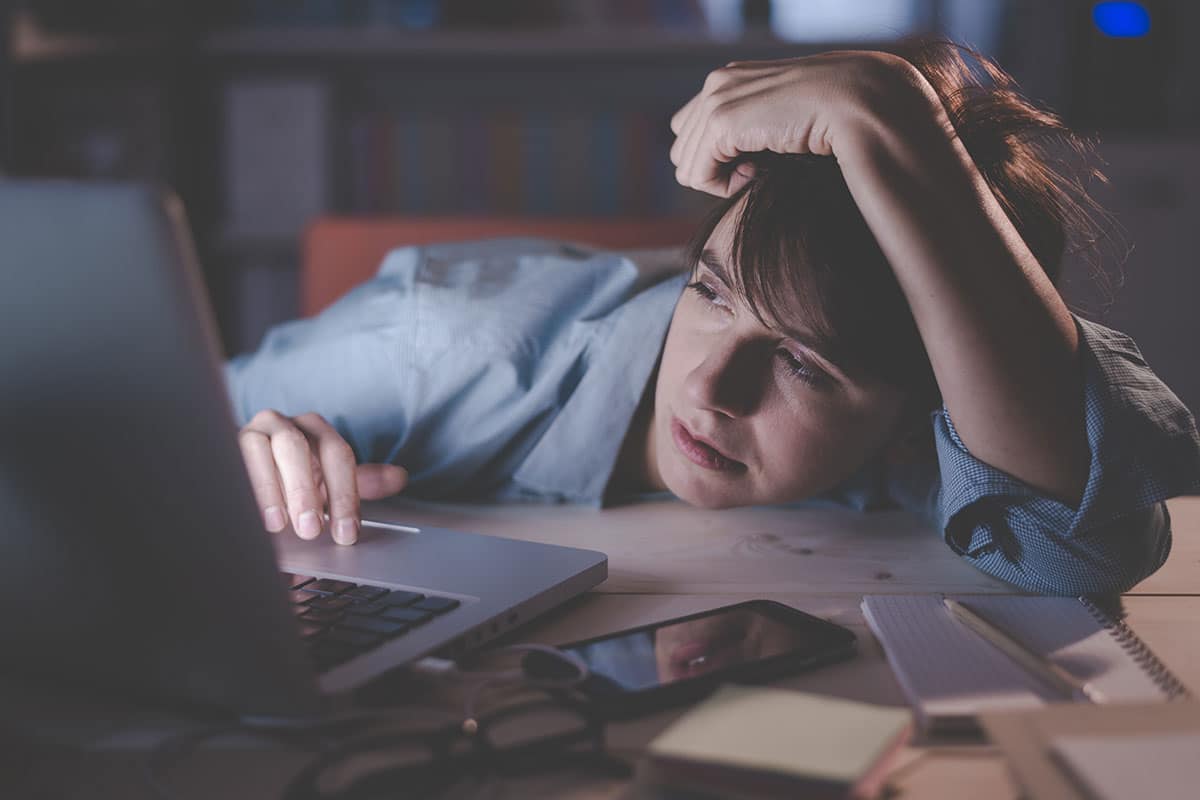
Food. Water. Oxygen. Shelter. All of these are essential to human life. But what about sleep, and what are the sleep deprivation effects to watch out for?
Sleep is a much-ignored essential key to our health, performance, safety, and wellbeing. Yet, according to The Philips 2021 Global Sleep Survey, only 45% of Australian adults are satisfied with their sleep, with many struggling to sleep well regularly. Stress is the leading barrier to a good night’s sleep, and 70% of adults worldwide reported new sleep challenges since the beginning of the COVID-19 pandemic – with women more impacted than men. Women are also more inclined to implement lifestyle changes and other strategies to try to improve their sleep.
Furthermore, sleep apnoea is among the most common sleep conditions, and more than 1 billion people worldwide struggle with it. Yet only 18% of diagnosed sleep apnoea sufferers regularly use their prescribed CPAP machine.
Some Sleep Statistics…
- Almost 60% of Australians have at least one sleep disorder, and almost 15% have medically diagnosed insomnia.
- Only 20% of us sleep uninterrupted throughout the night.
- 80% of us are less productive after a bad night’s sleep.
- 40% of sleep-deprived Australians will die of heart disease and/or diabetes.
- 20% of Australians have dozed off while driving, with 5% having an associated car accident.
- Sleeplessness can result in death – more than 3000 Australians died in this way in 2016-2017. This includes road accidents, industrial accidents, and medical conditions directly linked to sleep disorders.
- Several of the world’s major man-made disasters have been linked to sleep deprivation as a proven causative factor – including the Exxon Valdez oil spill in 1989, the 1986 Challenger space shuttle explosion, the Air India Express plane crash in 2010, the 1986 Chernobyl nuclear disaster, and the 1979 Three Mile Island nuclear incident.
Sleep deprivation is a major health and social issue in Australia. It costs our local economy more than $60 billion every year.
What are the Effects of Sleep Deprivation?
The recommended amount of sleep per night for a healthy adult is 7-9 hours – yet most of us average just 6.9 hours on weeknights.
Inadequate sleep is referred to as sleep deprivation. Whether voluntary or involuntary, the consequences of this are significant. Disruptions to the natural sleep-wake cycle (including those caused by jet lag and shift work) cause fatigue.
Symptoms include:
- Grogginess on waking
- Sleepiness all day
- Poor concentration
- Irritability
- Dozing off in meetings, at the desk, watching TV, reading, etc
- Mid-afternoon slump
- Constant yawning
Adults and children respond to lack of sleep differently – sleepy children are inclined to become more active and “silly”, revving up as opposed to slowing down. Moodiness and temper tantrums are more common, as are emotional lability, naughtiness, and behaviour issues. They may also display reluctance to get out of bed in the morning and need a longer daytime nap – which then sets them up to be unable to go to sleep at an appropriate time at night.
The Importance of Avoiding Sleep Deprivation Effects
Avoiding sleep deprivation is essential for one’s physical, mental, and emotional health and wellbeing, social interactions, performance, and safety.
Sleep deprivation leads to:
- Impaired judgement
- Moodiness and irritability
- Higher accident risk
- Poor concentration
- Slow reaction time
- Shorter attention span
- Reduced awareness
- Reduced efficiency
- Compromised learning ability and memory issues
- Poor performance in examinations and tasks
- Social and interpersonal issues
- Workplace incidents and accidents; mistakes; errors of omission
- Weight gain
- Chronic stress
- Disinclination to make healthy lifestyle choices
- Microsleeps
- Higher risk of developing chronic medical conditions, including diabetes, depression and anxiety, heart disease, stroke, Alzheimer’s disease, and some cancers.
Researchers have found that a person who remains awake for 24 hours without sleeping experiences effects (including hand-eye coordination) comparable to having a blood alcohol concentration of 0.1.
Recommendations and Tips for Sleeping Well
- Understand why you are not sleeping well. Common causes can include:
- Illness (colds, flu, sinusitis, etc) or pain (arthritis, indigestion, etc)
- Certain medications
- Sleep apnoea, restless leg syndrome, or another sleep disorder
- Snoring
- Shift work
- Poor sleeping environment
- Lack of exercise
- Using electronic devices in bed
- Caffeine consumption
- Alcohol and/or tobacco use
- Having babies or young children
- Chronic stress
- Voluntarily staying up too late
- Know how much sleep you need. Children of primary school age require 9-10 hours per night; teens need around the same, but with a possible shift in the timing of the sleeping cycle to sleep later and wake later; adults need an average of 8 hours, with some needing 7 and others needing 9.
- Set a specific bedtime and stick with it. Ensure it is early enough to give you 8-9 hours before you need to get up.
- Get up at the same time each day. Don’t sleep too late on weekends! Don’t make daytime napping a habit.
- Avoid caffeine after 4 pm.
- Don’t eat a big meal within a few hours of bed and moderate alcohol consumption.
- Quit smoking and avoid using sedatives.
- Don’t have a TV in your bedroom. Don’t use a smartphone, laptop, or tablet in bed. Never work in your bedroom.
- Manage stress.
- See your doctor if insomnia is an issue or if menopause symptoms are disrupting your sleep.
- Implement good sleep hygiene and a bedtime ritual.
- Manage snoring and get a formal diagnosis if you have reason to believe you suffer from sleep apnoea.
Is Snoring Disrupting Your Sleep?
If snoring is an issue for you, it will most certainly be disrupting your sleep – even if you are not consciously aware of it doing so.
Mitigate the risks of this by investing in SnoreMD – a medically-designed and highly recommended anti-snoring device that gently and safely repositions the lower jaw forward slightly while you sleep. This helps open the airways to prevent snoring.
SnoreMD is the Australian brand of this outstanding oral mandibular advancement device that is used all over the world by adults of all ages. It can also be used alongside CPAP for people with sleep apnoea.
Sleep better, feel better, and be better – discover SnoreMD now!


